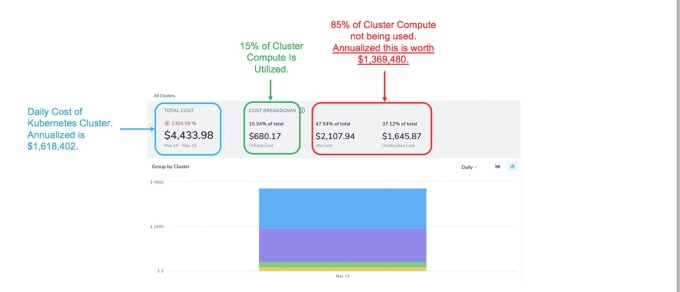One of the big advantages of using the cloud is ease of deployment. For engineers, being able to dial up infrastructure resources means being able to develop without delays, but it can also lead to big bills at the end of the month if you don’t know what you’re spending.
Harness wants to help with that, and today the startup released a product called Continuous Efficiency. It is designed to help engineering teams use cloud resources in a more cost-efficient manner, and do this in real time as they allocate resources.
Jyoti Bansal, co-founder and CEO at Harness, says that today most companies don’t know the extent of their cloud costs until the finance people get the bill at the end of the month. What’s more, the bill is entirely disconnected from the developers who are responsible for that cost. Finally, he says that at least 35% of that cost is waste, money they didn’t have to spend.
What Harness is hoping to do with this new product is give developers visibility into their spending with the goal that if they see how much waste they are generating they will dial back on usage.
“We are rethinking managing your cloud costs. From the perspective of developers, how do we give context sensitivity to developers so they get a full view of [what they are spending in the cloud],” he said.
Oftentimes, resources go unused or are over allocated, and giving visibility into this should let developers stay on budget, and in some cases save big bucks. To show how this works, the company says that one customer had a Kubernetes cluster configured with an annual cost of $1.6 million. After running the Continuous Efficiency product, it found that just 15% of the cluster compute resources were actually being used. After reconfiguring based on this data, they were able to save $1.3 million over the course of a year.

Image Credit: Harness
While Bansal says the product was in development long before the pandemic started, a tool like this at this particular moment in time is even more important as companies are looking for ways to cut costs.
Harness was founded in 2016 and has raised $80 million, according to Crunchbase data. Bansal formerly co-founded AppDynamics, a company that Cisco acquired in January 2017 for $3.7 billion.

